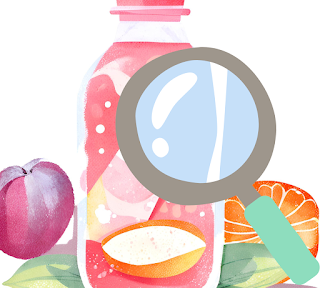In our fast-paced world, food adulteration has become a widespread practice aimed at reducing production costs or enhancing the appearance of food items. However, these hidden substances pose significant risks to consumers, affecting not only the quality of our food but also our health. Here, we delve into some of the most surprising and concerning food adulterations that may be lurking in your pantry.
1. Apple Juice Adulterated with Grape Juice
Many commercial apple juices are not 100% pure, often mixed with cheaper grape juice. While this might sound harmless, it reduces the authentic flavor and nutritional profile of apple juice. Grape juice also has a distinct sugar composition, which alters the expected health benefits of pure apple juice. If you're aiming for pure apple juice, be sure to check the ingredients on the label carefully.1
2. Olive Oil Mixed with Sunflower Oil or Peanut Oil
Olive oil is celebrated for its health benefits, but it’s one of the most adulterated products on the market. Often, lower-cost sunflower or peanut oil is added to it. These oils not only change the flavor and quality of the olive oil but can also pose serious risks for those with peanut allergies. Pure olive oil should have a distinct aroma and thicker consistency, so be wary if it seems unusually thin or has a neutral smell.1
3. Green Chili Covered with Malachite Green
Vibrant green chilies are appealing, but that striking color might be enhanced by a synthetic dye called malachite green. Used in the textile and aquaculture industries, malachite green is harmful when ingested. Prolonged exposure can cause digestive issues and even have carcinogenic effects. To avoid this, choose organically grown chilies, or scrub and rinse chilies thoroughly before use.1
4. Chalk Powder in Sugar
Sugar adulteration is quite common, and chalk powder is often added to bulk up the product. This not only dilutes the sweetness but also introduces a substance that can be harmful when consumed in excess. Chalk powder ingestion can lead to digestive discomfort, and its prolonged intake may contribute to more serious health issues. Testing sugar in water can help; if it leaves a white residue, it might contain chalk.1
5. Oregano Adulterated with Bulking Agents
Oregano leaves, known for their distinct flavor, are often mixed with bulking agents such as dried leaves from non-edible plants. These adulterants diminish the taste and aroma of the spice and may even be harmful. Check for inconsistencies in the color and size of the leaves or buy whole-leaf oregano for better assurance of purity.1
6. Melamine in Cereals and Bakery Products
Melamine, a chemical used in making plastics, is sometimes added to increase the apparent protein content in cereals and bakery items. This substance is highly toxic to the kidneys and can lead to melamine poisoning. As melamine cannot be detected by taste or smell, purchasing certified organic products or those from trusted brands can reduce the risk of exposure.1


